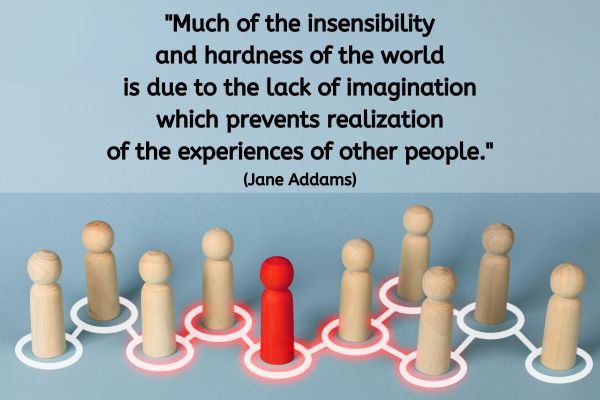I recently had this question land in my inbox and I thought it was worthy of this weeks coaching related post.
When I asked myself this question I came up with the several points about how I approach coaching, some of the beliefs I hold and how they impact this potential situation. I’ve included 7 in the post below.
This is not intended to be a list that tells you how all coaches “should” approach coaching. If you read any of these points and find that you use a different approach then, as always, I’m going to say use the way that works for you and your clients. (Plus feel free to contribute your approach/belief in the comment section.)
If you find any points that you totally disagree with I invite you to consider it for a moment as a way of potentially increasing your own coaching flexibility or just re-affirm your own thinking.
The Meaning of Empathy
I know that many coaches think that being empathetic is an important part of how they coach.
If you look up the meaning of the word empathy in the dictionary you will find an entry such as: Noun: “The ability to identify oneself mentally with a person or thing and so understand his or her feelings or its meaning.” Note that it does not say – feeling the same as that other person.
If you had previous thought that you had to show empathy to be the coach you want to be, don’t get tricked in to thinking that means you have to be feeling the same thing as your client.
Look after yourself
It’s just easier to fully focus on your work and your client if you are looking after yourself. You probably already know that it’s a lot easier not to be affected by someone else’s mood if you are feeling well in yourself.
You’ll probably already have a good idea about what the things are that when you do them you have a better day.
Have a support system in place
That may be a system in place that alters over time. It can be individuals and groups that you pay and those you don’t. It may even take the form of a particular book, CD or media clip. The important bit is that it’s a system that works for you.
(I may be biased, but for me as a coach, one of the most obvious members of a support system is another coach!)
Non-judgemental listening
I have to be honest; my initial response was to rack my brains for examples of clients’ negativity. When I looked there were potentially several situations that I guess could be labelled as clients negativity.
You may read that and wonder if I am that unobservant not to have seen/heard that during the actual coaching session. During a coaching session I am listening/looking for what is going on for a particular client – both in “reality” and how they are perceiving a scenario.
I’m normally listening to influence – I find that judging and labelling those conversations and thoughts as positive and negative don’t add anything to my work.
Be aware of your own “stuck points”
If you find yourself feeling stuck at any time you’ve probably bought into the same story that your client is telling themself. Quite possibly because it’s a story you also tell yourself.
It’s a lot easier for someone else’s mood not to impact upon your own if you haven’t bought into their “story” – the things they are telling themselves about a situation.
Change can happen in an instance
I believe that change can happen in an instance. I think that being “dragged down” by negativity can be perceived as a much bigger problem if it’s a situation that you think is something you can’t change immediately. If I feel my mood shift in a direction I don’t want to go, then I know I can also quickly change it back.
Selecting the clients who work with you
If you find a particular client negatively impacts you, then I suggest you consider why you are working with them?
I know, particularly when you are first beginning your coaching journey and setting up a coaching practice, it may feel that you have to say yes to everyone that wants to work with you.
You will know your finances and situation best. You may want to consider what you could be doing with the time and energy you’re using with such a client instead.
If this is a common theme in the majority of your clients, is there anything in your marketing materials etc that is attracting such behaviour?
What else can you add to this list?



